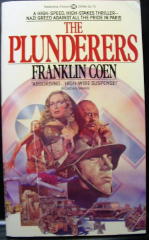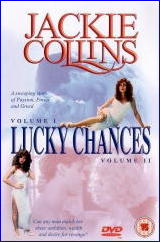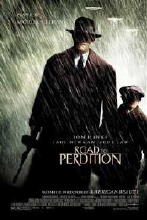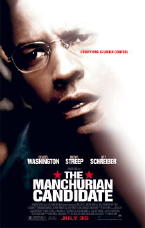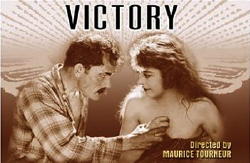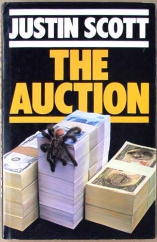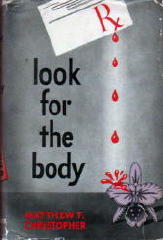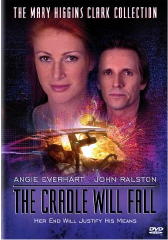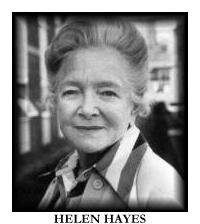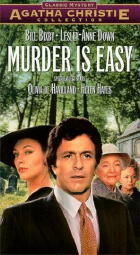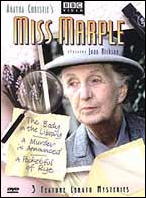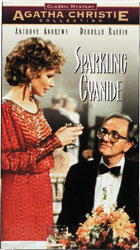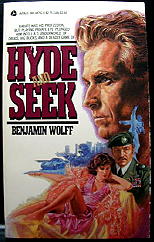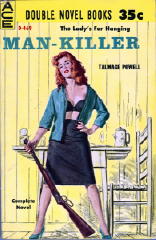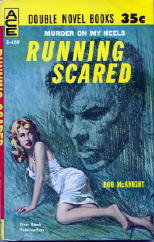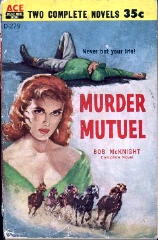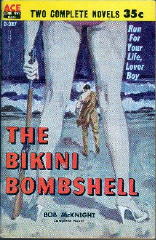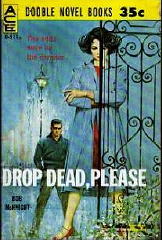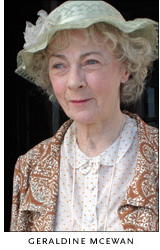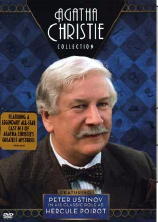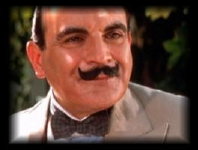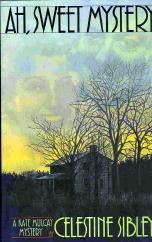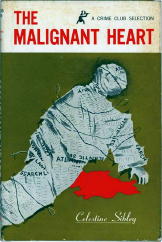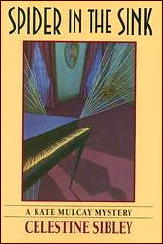Thu 18 Dec 2008
Archived Review: BRUCE ZIMMERMAN – Thicker Than Water.
Posted by Steve under Bibliographies, Lists & Checklists , Characters , Crime Fiction IV , ReviewsNo Comments
BRUCE ZIMMERMAN – Thicker Than Water.
Detective Book Club; reprint hardcover [3-in-1 edition]. First edition: HarperCollins, 1991. Paperback reprint: Harper, 1993.
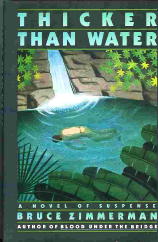
In the five year period from 1989 to 1994, Bruce Zimmerman wrote four mystery thrillers featuring phobia therapist Quinn Parker, but since then he seems to have disappeared. Or at least I’ve found nothing more about him than what’s in Al Hubin’s Crime Fiction III, even using a quick search on the Internet. The four books and nothing more. [See also the UPDATE below.]
From the book at hand, the second in the series, Zimmerman seems to have been aiming at the moderately-boiled Travis McGee market. Treating phobia patients as a profession seems to be a good way of getting the San Francisco based Parker into all kinds of scrapes, but in this book, nothing is made of it.
Parker gets involved this time when he gives a good buddy a hand after he inherits a half-million dollar estate in Jamaica and finds there are exceedingly dangerous strings attached.
Zimmerman is very good at thumbnail dead-on descriptions of the people found in his books, and more than once I was brought suddenly to attention by a plot twist that was (to say the least) unexpected. But as a detective, Quinn Parker is — well, if inept is not quite the right word, then to say the least, he’s not very good at it. One additional death, if not two, can be attributed directly to Parker’s entirely unsavvy approach to the business at hand.
Worse, he seems all but blithely unaware of it. He swallows hard, and it’s on to the next chapter. Nor is the ending particularly neat and tidy, with one explanation in particular producing (in my mind) many more questions than answer.
From mind-boggling turns of plot to mind-blowing maladroitness, that’s the mix. Worth spending an evening’s reading time on, but not likely to be remembered strongly by more than a few of those who do.
[UPDATE] 12-18-08. First of all, notice that I referred to Crime Fiction III in this review. The latest edition of Al Hubin’s book (but available only on CD) is the Revised Crime Fiction IV.
Secondly, either the Internet contains more than it did six years ago, or I’m getting better at Google. Was Google around six years ago? Maybe not. Either way, I found out why there were four Quinn Parker mysteries (as stated in the review) and only four.
Bruce Zimmerman, as it turns out, discovered Hollywood, or Hollywood discovered him. To his lasting great fortune, Zimmerman started writing for TV in 1998, and in 2000 he turned producer. Series to his credit in the latter capacity (thanks to IMDB) include The District, Judging Amy, Desperate Housewives, CSI: NY, and K-Ville. (I really liked that last series, a cop show taking place in New Orleans, but I think I was the only one. After last year’s writers’ strike, it never returned.)
And thanks to the previously mentioned Crime Fiction IV, slightly expanded, here’s a list of the mystery novels that Bruce Zimmerman produced:
ZIMMERMAN, BRUCE. 1952- . Series character: Quinn Parker, in all four.
Blood Under the Bridge. Harper, hc, 1989; St.Martin’s, pb, 1990. [Nominated for an Edgar in the Best First Novel category.]
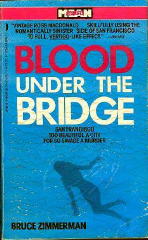
Thicker Than Water. Harper, hc, 1991; ppbk, 1993.
Full-Bodied Red. Harper, hc, 1993; ppbk, 1994.
Crimson Green. Harper, hc, 1994; ppbk, 1995.
